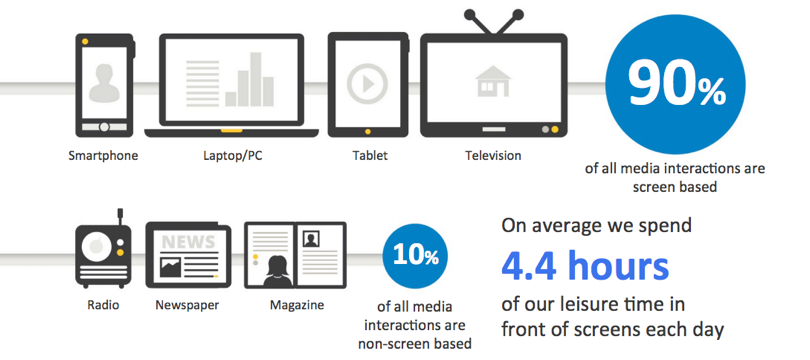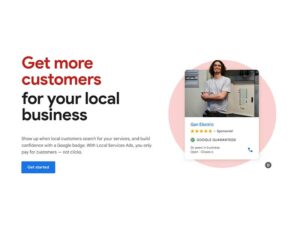Create a small business marketing plan
Ready to get started with creating a digital marketing plan for your small business but don’t know where to start?
Today we’re going to break down the steps you’ll need to execute your plan so that you can say hello to leveraging the revenue growing power of the internet.
Is Advertising Online Right For You?
Let’s cut right through the fluff that is the internet marketing game and get real with each other. Digital marketing is the most strategic growth focused arena when it comes to spending your businesses hard earned dollars. Odds are, you’re having trouble figuring out how to harness its power to get results.
It’s a fair assumption because only about 25% of smaller sized companies have a plan for their digital advertising and even fewer have a full plan developed. But, there is a bright side!
The good news is, this means your competitors are most likely falling short, so let’s get started.

Half Your Success Is Based On These 3 Questions
Making the decision to start a online marketing campaign means the possibility of massive success for your business, however, it also has been known as a black hole for your money.
So, how can you make sure that doesn’t happen?
We recommend doing your homework on this one. Whether you’ve been in business 50 seconds or 50 years, you’ll need to have a solid foundation for this to succeed.
Things to know before you go gung-ho (with digital marketing):
- Can you clearly state what your business does for people in 10 words or less? The internet is a scary place where attention is often in scarce supply. We need to take full advantage of the images and headlines that we use. Most people won’t make it past them if they aren’t captivating.
- Describe the people that your product or service best helps. This might feel like you’re generalizing but it’s quite the opposite. Your ideal customers have characteristics, traits, habits, and lives. The more you know about the people that best enjoy your business, the better you can craft a marketing message that resonates.
- Why should someone chose to do business with you over your competition? Knowing what makes you different helps you highlight your uniqueness and people are searching to be a part of that.
What Platforms to Use
Let’s not over complicate this, because there are literally 100’s of platforms you can select and each one looks shinier than the last. The last thing that we want for you is to become overwhelmed with options and give up.
We recommend you stick to three platforms at most, and develop a good understanding of those before you explore any others.
So, which ones should you chose?
If you’re a service based business that serves predominately local clients? You will probably start with these three:
- Google – This is by far your heavy hitter to dominate your local market. Set up a Google Business Profile (formerly Google My Business) account.
- Facebook (possibly Instagram) – This platform is known for it’s high engagement in the local community. Add Instagram if you have a business that is very photogenic.
- Email & Text – If you don’t currently have a way of gathering your customer’s email and phone number, you’re missing out on the highest ROI (return on investment) platform.
Of course, at the center of your efforts, you will need to have a fast, functional and stunning website. If you don’t have one now or what you do have is not good enough, contact us for advice and potentially some services. Contact us here.
How to Use Each Platform (generally)
Now Lets Bring It All Together
Now that you have a solid foundation of what your marketing message will be by answering the questions above, you have a direction for where to put that message and how to approach each platform.
This is how you bring it together.
Tools That Will Help You Finally Start Marketing Online (and how to use them)
Google Business Profile account: Optimize your listing for success.
- Link your business information with all the major verifying directories, which boosts your position in Google.
- Show your best side with photos and videos that encourage people to contact you or learn more.
- Get as many customer reviews as possible! This can’t be understated.
- Keep it updated.
If you don’t have an account, get one here today.
Facebook for business: Many business owners have set up a Facebook page for their business and might be posting updates occasionally and at random. Unfortunately, that’s not going to grow your business, at least not at the speed you probably want.
- Plan on posting 3-4 times per week, spread them out and set them at targeted times. If you run a restaurant, target those posts for 10am.
- Take high quality images that focus on your product or service’s benefits and have people’s faces in them. A close up of a lunch special is less impressive than the chef holding that lunch special smiling at the camera.
- Use up to 3 emojis in your posts, they humanize your posts and provoke people to comment by asking questions or making bold statements.
- Give away free stuff. Depending on your business, giving stuff away over social media in exchange for a follow or email is a great PR opportunity in a non-threatening way.
- Post non-business related topics that are politically neutral and highly relevant to what your business does.
Email & Text Marketing: We use a service called Active Campaign. We like how visual it is, beginner friendly, and it has ability to make complex campaigns as your business needs evolve.
- The headline of your emails matter. Go back to the questions we asked ourselves and speak the lingo of your people so they will open up your letters.
- Use images and talk naturally in your emails. We encourage businesses to use email as either a personal letter to each customer or a teaser for something on your website.
- Always give your customers a call to action (a button or link to do something further with your business). Example: If you’re suffering from lethargic energy moods and need advice, contact me HERE.
- Sending a text to someone’s smartphone is highly personable and gets opened the majority of the time, which is gold for businesses. However, you’ll want to use it sparingly (1-2 / monthly). That said, use it, it works wonders. *Let us know if you want to know what to say in those texts.
Create a Content Calendar
A calendar of tasks will keep you on a straight line towards success. Digital marketing is not a strategy that works well with inconsistency.
Businesses that keep their message inline with bringing consistent value to their customers, making non-threatening offers, showcasing not selling, and engagement are the ones that see real growth in their numbers.
Look at how advertising dollars are quickly turning away from traditional advertising and focusing on the quality of online.
Formulating a Conclusion
If you just read our article and seem overwhelmed by the amount of work that goes into a “beginners” journey with digital marketing for small business, you’re not alone.
Most businesses do not have the time or the willingness to do it all. I mean, you already are an expert in what your business does, why would you be one in marketing too?
…but the exponential growth in revenue and return on investment are too big to ignore!
We’ve met business owners that have successfully orchestrated a great digital marketing plan independently, but it has come with a large time commitment and steep learning curve.
We urge you to consider implementing a complete digital marketing plan for your small business, especially as the digital era continues to grow. If you need help, our advice is always free or get started working with the Clark Five Design team today.



![How To Best Use Google My Business for Small Businesses SEO [Updated for 2021]](https://clarkfivedesign.com/wp-content/uploads/2019/10/how-to-best-use-google-my-business-for-small-businesses-seo-300x225.jpg)
